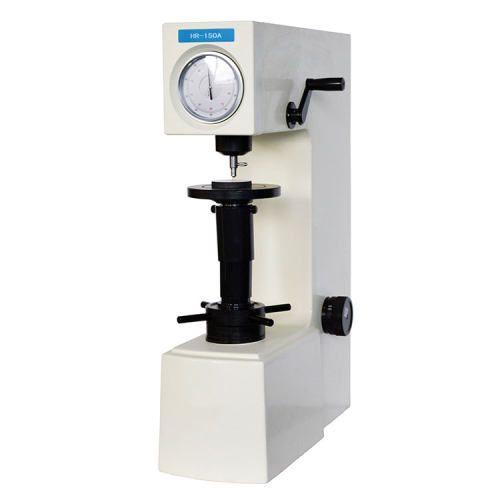How Is the Maintenance of a Rockwell Hardness Tester Done?

Maintaining your Rockwell hardness tester is not only a good idea, but it will also protect your safety and financial stability, extend its life, and guarantee that you receive accurate results. Prioritizing routine maintenance will help you make sure your tester operates as intended and produces reliable, accurate data. Here are some key steps to proper maintenance:
Regular Cleaning:
l Daily cleaning: To get rid of any oil, grime, or debris that may have accumulated on the anvil, indenter, or other parts, wipe the tester down with a clean, dry cloth after using it.
l Periodic cleaning: Depending on use, more thorough cleaning is advised regularly. To guarantee correct part movement and remove tenacious dirt, use a gentle brush and a non-abrasive cleaning solution.
Lubrication:
l Follow manufacturer's instructions: Different recommended lubricants and lubrication points may be found for each model. For information on which lubricant is suitable and how often to use it, refer to the handbook.
l Lubricate sparingly: To avoid drawing dust and debris, apply lubricant sparingly and only when it is necessary.
Calibration:
l Regular calibration: Make arrangements for the tester to be calibrated by a trained technician regularly. If the tester is used extensively, it should ideally be calibrated once a year at the latest. In addition to following industry standards, this guarantees accurate measurements.
l Use reference blocks: Regularly use reference blocks with known hardness to ensure the accuracy of the tester. To guarantee consistency, this can be carried out both before and after calibration.
Preventative Maintenance:
l Inspect regularly: Examine the tester carefully for any indications of wear, damage, or malfunction. Look out for any worn-out components, loose screws, and irregularities in the movement.
l Store properly: Maintain the tester in a dust-free, clean, and dry environment when not in use. Steer clear of places with unusually high or low humidity.
l Follow safety precautions: Wearing protective equipment, such as gloves and glasses, is crucial when handling testers and performing maintenance tasks.
Additional Tips:
l Use proper test specimens: Verify that the test specimens' cleanliness, levelness, and thickness comply with the specifications of the selected test scale.
l Avoid overloading: Make sure you don't go over the tester's maximum load capacity. This might weaken accuracy and harm the tool.
l Handle with care: The tester should not be dropped or bumped as this could compromise its accuracy and calibration.
Your Rockwell hardness tester will last for many years and continue to be accurate, strong, and function at its peak if you follow these maintenance instructions. Keep in mind that investing in routine maintenance can guarantee consistency in your outcomes while saving time and money.
- Art
- Causes
- Crafts
- Dance
- Drinks
- Film
- Fitness
- Food
- Giochi
- Gardening
- Health
- Home
- Literature
- Musica
- Networking
- Altre informazioni
- Party
- Religion
- Shopping
- Sports
- Theater
- Wellness


